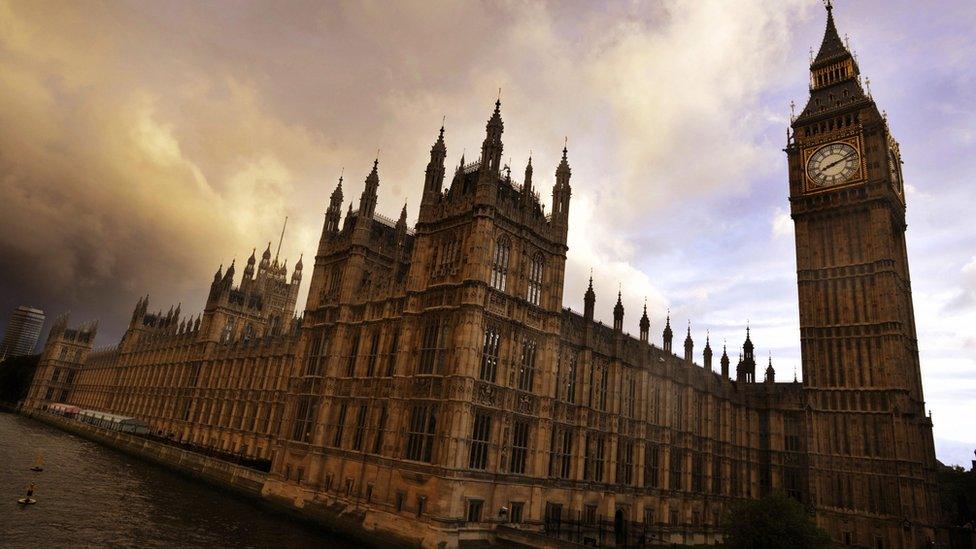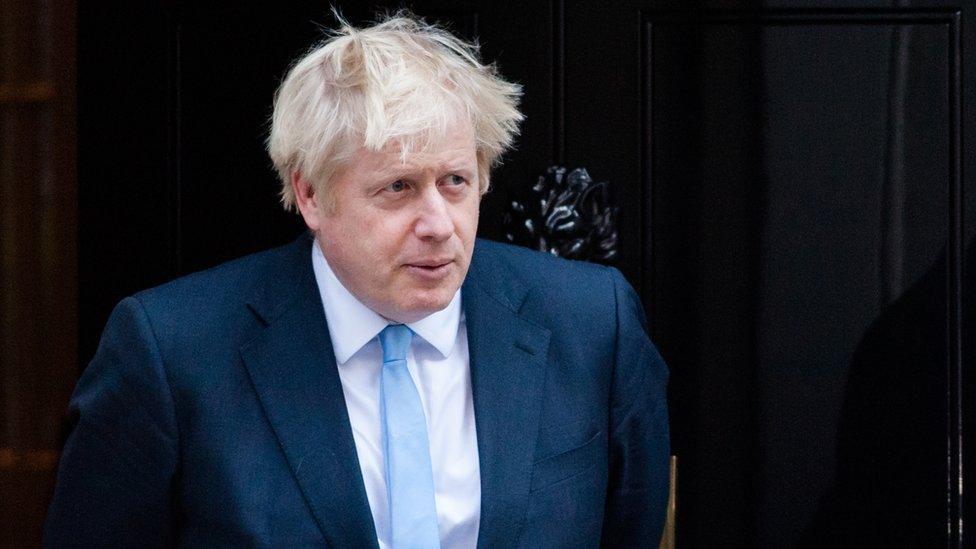Government criticised for delay in setting up security committee
- Published

The Intelligence and Security Committee is made up of cross-party MPs
The government has been accused of avoiding scrutiny by not establishing a key parliamentary committee.
The Intelligence and Security Committee (ISC) has not sat since before December's election - its longest break since it was established in 1994.
It has led to concerns about a lack of oversight over important decisions on intelligence matters.
The committee is also due to publish a report into alleged Russian interference in British democracy.
It produced the report last October, but it didn't receive sign off from No 10 before the election.
Its release was then delayed in November until after the public went to the polls - but the report cannot be published until the committee reconvenes.
The ISC is one of Parliament's most important committees, overseeing the seven agencies and departments which make up the UK intelligence community.
It sets its own agenda and can call ministers, intelligence chiefs and others to give evidence. It also has access to classified information, subject to the Official Secrets Act.
Because of the sensitive nature of many of its inquiries, its evidence sessions are held in private.
Lack of clarity
Ultimately, members are appointed by the prime minister. But political parties are asked to nominate MPs - based on their relative size in the Commons - and there are also members from the Lords.
I understand opposition parties confirmed their nominations months ago. Sources said there had been enough time for relevant vetting to be carried out for new members.
But there is a lack of clarity on the Conservative candidates, with Tory MPs kept in the dark about whether a final decision has even been made six months after the election.
That's led to frustration among the other parties in Westminster - with Labour, the SNP and the Liberal Democrats all calling for the committee to be reconvened urgently.

Boris Johnson is facing criticism over the committee not being established yet
Labour's shadow security minister, Conor McGinn, said the committee's continued absence was "deeply worrying".
"This delay has meant that important work, like the report on the Russian threat to the UK, is not being published, which is a major concern," he said.
"The government needs to take urgent action to get the committee back to work."
The SNP's Ian Blackford - a former member of the committee - went further, accusing the government of "repeatedly and intentionally failing to establish Parliament's Intelligence and Security Committee to escape scrutiny on important security matters".
He said it was "particularly worrying when the Committee's oversight has become all the more crucial given the crisis caused by the health pandemic" - pointing to an incident last week where a Russian online deception operation had been exposed, "unveiling a co-ordinated and extensive attempt to create tensions between European countries and the US".
Mr Blackford added: "The foreign secretary publicly warned of these growing security threats, stating that hostile governments are using the challenges thrown up by the global pandemic to take advantage of 'a perceived opportunity'."
'Reprehensible'
The Liberal Democrats, who haven't had a seat on the committee since 2015, have expressed concerns too.
The party's Foreign Affairs Spokesperson Alistair Carmichael said the government "should be doing everything it possibly can to maintain public confidence", especially during the coronavirus pandemic, adding: "Behind the scenes of 10 Downing Street, it is increasingly clear that is not a priority.
"Given the prime minister has for nine months sat on the intelligence committee report into Russian interference of our democracy, his decision to delay nominations to the committee raises serious ethical questions.
"This unprecedented underhand behaviour is utterly reprehensible."
A Downing Street spokesperson said: "Work to establish the committee is ongoing and as quickly as current circumstances allow, and further announcements will be made in due course.
"The Investigatory Powers Act allows the UK to maintain one of the most stringent scrutiny regimes in the world through the Investigatory Powers Commissioner, the Investigatory Powers Tribunal and both executive and judicial oversight."